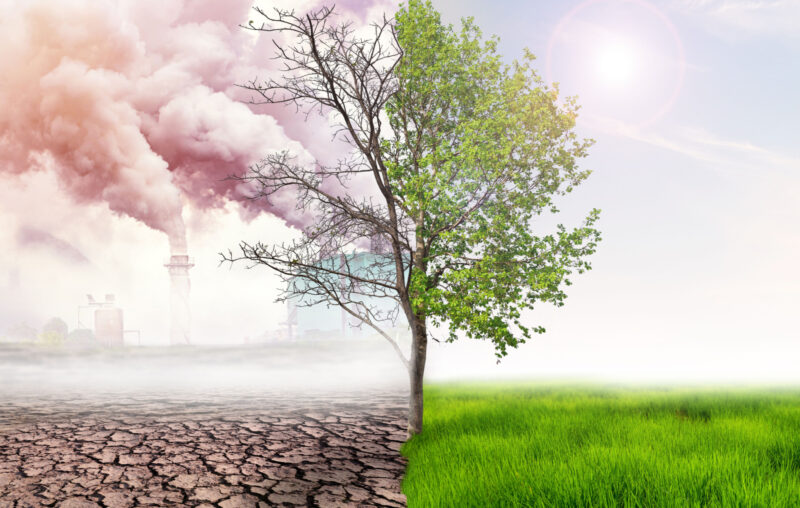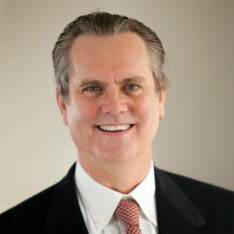Warm-Mongers vs. Classical Liberals

The Great Climate Alarm is in its 36th year, dating from a page-one feature in the New York Times in June 1988, “Global Warming Has Begun, Expert Tells Senate.” Given that “climate change” now defines environmental and energy policy, with unceasing government intervention at home and abroad, this beginning and the classical liberal response are worth revisiting.
The Times headline introduced a news piece where a limited set of facts flowed seamlessly into projected dangers, and then into activist government policy. Fire-ready-aim.
“War is the health of the state,” Randolph Bourne wrote during World War I. Robert Higgs’s 1987 book Crisis and Leviathan generalized the principle: Crises are typically exploited by statist ideologues to justify Leviathan. That is the perspective from which classical liberals have viewed climate alarmism and forced energy transformation from the start. Warm-mongering had joined war-mongering.
Interestingly, the hard facts behind the Times story were actually presented in its first paragraph. (Old-fashioned journalism still had a toehold in those days.) But imagine if the headline read “Recent Hot Weather Alarms a Scientist,” with the piece buried deep inside the so-called newspaper of record.
The headline writer knew what his environmentalist audience wanted to hear. Human interference is changing Nature, courting disaster. Massive government intervention is required to arrest the threat. This repeated the 1-2-3 in Rachel Carson’s Silent Spring (1961), a book associated with the beginning of the modern environmentalist movement.
Philip Shabecoff, the paper’s environmental correspondent since 1977, delivered the 1-2-3. He recounted the previous day’s Senate testimony of NASA scientist James Hansen: “It was 99 percent certain that the warming trend” that year was caused by “the greenhouse effect.” That is, human interference via fossil-fuel combustion was increasing atmospheric carbon dioxide (CO2) concentrations. (Notice “it” was 99 percent certain, not “Hansen,” as if Science itself were speaking.)
Step Two: Now that human interference was confirmed, disaster looms. “If the current pace of the buildup of these gases continues,” Shabecoff wrote, “the effect is likely to be a warming of 3 to 9 degrees Fahrenheit from the year 2025 to 2050.” This warming will be “greater in the higher latitudes, reaching as much as 20 degrees.” Worse still, “The rise in global temperature is predicted to … melt glaciers and polar ice, thus causing sea levels to rise by one to four feet by the middle of the next century.” Which is now the current century.
For Step Three, Shabecoff had to turn to another witness, George Woodwell, director of the Woods Hole Research Center. Given the dire consequences that such a projection implies, “Dr. Woodwell, and other members of the panel, said that planning must begin now for a sharp reduction in the burning of coal, oil and other fossil fuels that release carbon dioxide.”
Today, with command-and-control the rage at home and abroad, how does the 1988 prediction fare? With the start date of 2025 imminent, Shabecoff’s midpoints of 6 degrees and two-and-a-half feet compare to a recorded one degree and four inches. But the alarmists say, just wait. The worst is ahead to make the dire come true. Meanwhile, “climate change” is tied to every extreme weather event by activist climate scientists and an obedient press.
Problematic climate models, combined with a deep-ecology view of optimal Nature, drive the alarm today, resulting in such headlines as “Climate Change Is Speeding Toward Catastrophe. The Next Decade Is Crucial, U.N. Panel Says.” The failed headlines and predictions of prior decades are forgotten; humility in the face of the unknown is absent.
Classical liberals have engaged the climate debate at all levels: physical science, economics, political economy, political science, history, psychology, and public policy. Time-honored insights come into play regarding the scientific method, costs versus benefits, politics without romance, regulation as a process, and the efficacy of free-market institutions to anticipate and benefit from change.
Peculiarly, the climate debate centers around the emissions of a colorless, odorless trace gas that was never considered a pollutant before politics took over. In fact, science had established ambient CO2 levels as correlated positively with plant life and global greening, a positive externality in the jargon of economics. This gave classical liberals the high ground against the sudden war on CO2 and, by implication, fossil-fueled modern living.
By the early 1990s, Patrick Michaels et al. laid the scientific groundwork that continues to frame the issues. William A. Niskanen presented a list of questions regarding greenhouse gas emissions and the policies meant to control them, which the Warm-Mongers have yet to answer in order to justify government intervention. Austrian-School economist Steven Horwitz did the same in his essay, “Global Warming is About Social Science Too.”
Classical liberalism can stand proud on the climate issue—and offers the first-best policy of do no harm. The charge of “mother of all [negative] externalities” against free market energy is, on close inspection, a problem of statism and climate policy activism.
Thirty-five years in, climate mitigation policies are a road to serfdom. Roads to freedom—to capitalize on the good and ameliorate the bad—remain the best climate policy. Is a mid-course correction ahead? Or will the climate industrial complex numbly disregard the commoners in a futile quest for “climate stability”?










